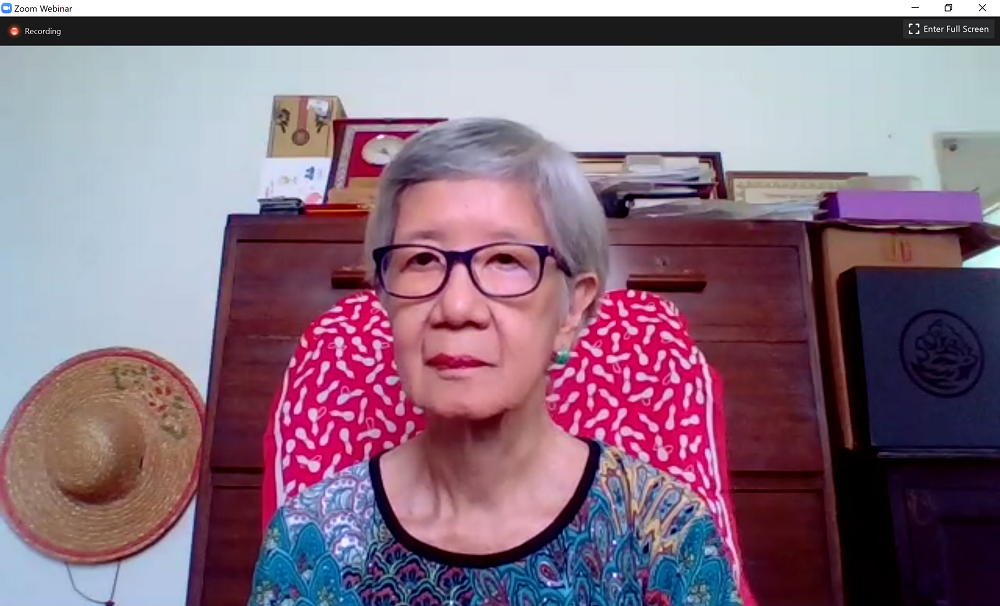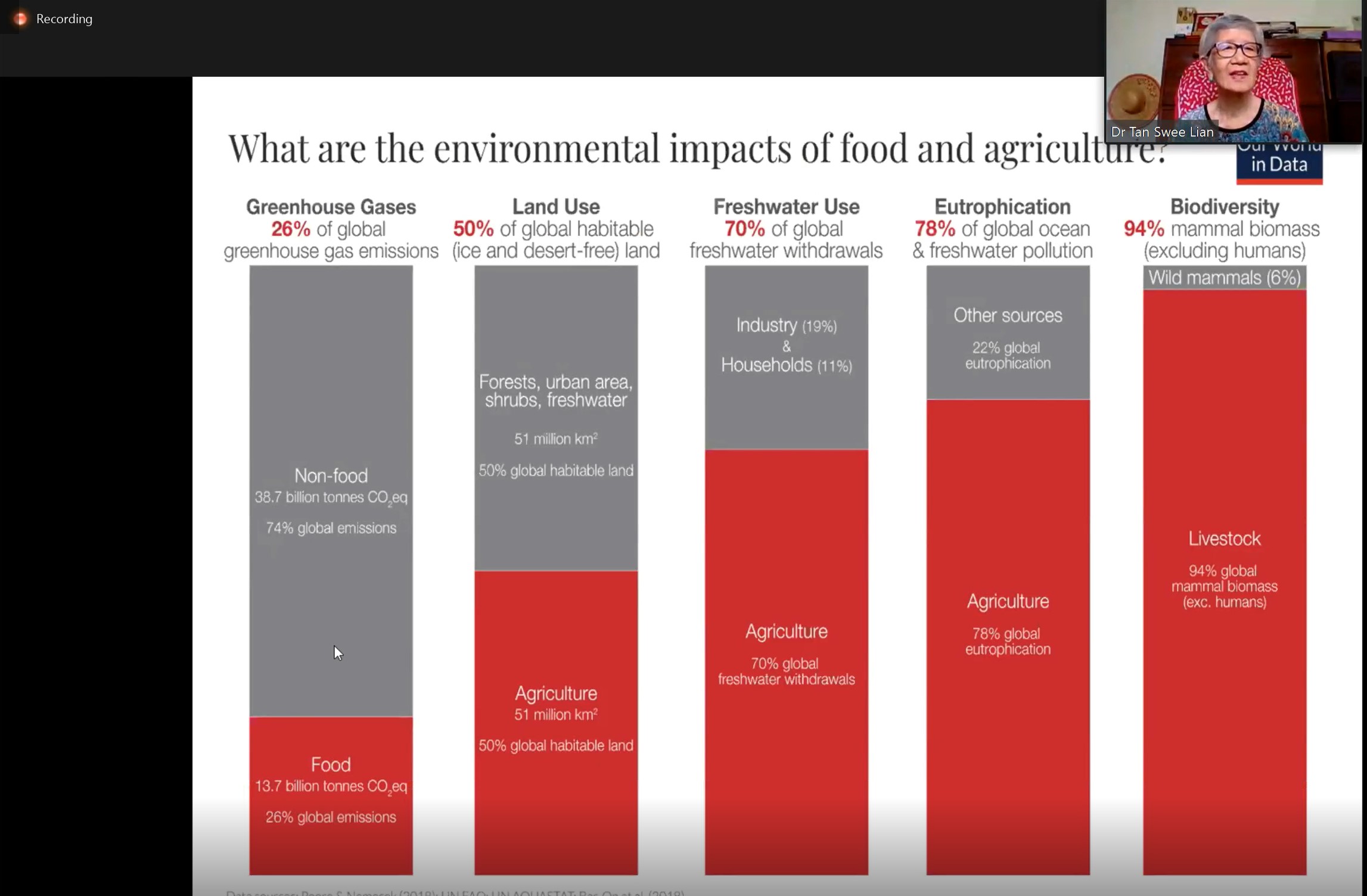

Dr Tan during the
Q&A session
The
Institute of Postgraduate
Studies and Research (IPSR) organised UTAR International Collaborative
Partner (ICP) webinar series. Speaking at the seventh webinar was
International Collaborative Partner of UTAR Global Research Network Dr Tan
Swee Lian who presented on “Can the world achieve zero hunger?” on 12
November 2020. The webinar was held via Zoom.
Dr Tan introduced the United
Nation’s Sustainable Development Goals (UNSDG) blueprint which was set up
with the goal to achieve a better and more sustainable future for all in
2015. “I will be addressing on SDG 2 which addresses “Zero Hunger”. SDG 2
strives to overcome the hunger issues by imposing strategies such as wasting
less food and supporting local farmers. The facts and figures in 2019 showed
that nearly 690 million people are hungry, that is around 8.9 per cent of
the world population. Three hundred and eighty-nine million were found in
Asia while more than 250 million were found in Africa. Close to 750 million
face severe levels of food insecurity. Ironically, there are two billion
people who are suffering from obesity. About two billion people have no
regular access to safe, nutritious and sufficient food while 144 million
children under five years old are affected with stunted growth. At the
current rate, by 2030 it is estimated that more than 840 million or 9.8 per
cent of the global population will be hungry. However, the good news is
global food production is in fact very efficient and there is enough food to
feed around 10 billion people.”
As Dr Tan questioned on why hunger
still exists, she said, “There is an uneven distribution of food whereby not
everyone gets access to food due to poverty but we also have people with
excessive lifestyle from unequal distribution of wealth. Of course, we also
have poor or wasteful food handling due to limited access to effective
technologies for storage, handling and transportation because of poverty and
lack of resources. On another hand, we also have problems like overbuying
and the culture of throwing away excess food. The annual global food wastage
is 1.3 billion tonnes.”
In the webinar, Dr Tan also
presented the total crop
production, global consumption of food types, poverty issues, environmental
impacts of food and agriculture, food loss and waste, greenhouse gas
emissions from various sectors, aquaponics, urban farming, novel protein
sources, underutilised plant species, meat analogues, lab-grown meat and
other related topics.
She also spoke about China’s
emergence from poverty as an example for tackling poverty for the good of
the people; whereby China’s poverty rate fell from 88 per cent in 1981 to
0.7 per cent in 2015 and its income per capita increased 25-fold between
1990 and 2010, from $200 to $5,000. “There was a rapid expansion in the
labour market in various industries and the protracted period of economic
growth where its citizen could earn more income. There were also a series of
government transfer funds such as urban subsidy and the introduction of
rural pension. Thus, there has to be a political will to lift people out of
poverty in the country,” added Dr Tan.
“The negative impact of livestock
production is that those livestock competes with humans for grain and
carbohydrate sources and ruminant livestock also produce an estimation of 18
per cent of anthropogenic greenhouse gas emission,” said Dr Tan as she
shared her views on the status of food production in the world.

Dr Tan explaining
the environmental impacts of food and agriculture towards the environment
She advised, “For those of us who
are privileged to be in the middle-class or higher, there has to be a
personal will to adopt a more sustainable lifestyle. Do not waste food. We
can opt to buy less, store less, serve less and eat less. If you still have
food waste, do not throw it into the trash, another good way is to compost
food wastes so you can use it again. It is advisable to consume less meat to
reduce the risk of having diseases such as colorectal cancer, diabetes and
others. Be a vegetarian or a flexitarian and choose to eat local foods to
reduce carbon footprint.”
“We can achieve zero hunger as we
are already producing enough food to feed the world population. There has to
be fair and equitable distribution of food as well as no wastage of food.
What we need is political will and commitment as well as our personal will
and commitment to achieve sustainable food production and consumption
systems,” added Dr Tan.
Dr Tan is also a fellow of the
Academy of Sciences Malaysia. Her research area is on plant genetics
(cassava), plant breeding and crop improvement (sweet potato), crop
production (Stevia), crop physiology (corn (maize)), horticulture and
agronomy.
![]()
Wholly owned by UTAR Education Foundation Co. No. 578227-M LEGAL STATEMENT TERM OF USAGE PRIVACY NOTICE